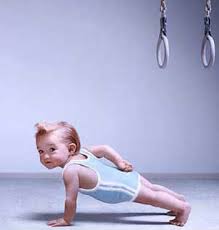While growing up at some point, we all have imagined what it would be like to have kids of our own. What they would look like, dress like, act like. We also imagine how we would parent them, discipline them, and what activities they would be a part of. Then comes the dream of having a kid that is unlike any other. Imagine your own kid an Olympic gold medalist. It would probably be one of the proudest moments of your life. However, the most concerning question to parents is how young should they begin training? How much training? Many believe starting at ages 2 or 3 will allow the child to develop the skills early on and create lots of time for improvement. Yet, this may not be the most strategic plan if you truly believe your child could be an Olympian. 
Yes, training is important, and those at a young age may seem to gain an advantage over those who begin later. However, a recent study by Professor Arne Gullich, director of Institute of Applied Sport Science, compared the starting age of training from 83 Olympic medalists and 83 athletes who compete and the same level and did not win a medal. Results showed that those who earned an Olympic medal started about 18 months later than those who did not receive a medal. While both groups of the athletes began training under the age of 12, the average age of training for the medalists was 11.8 and the non medalists was at the average age of 10.3. The medalists also acquired significantly less training in their sport during adolescence and significantly more training in other sports. While it may not seem like a huge difference, their achievements later in their careers may say otherwise.
Another advantage to starting later in life is the reduction of injury, burn out, and introduction other activities the child might be more interested or skilled in. The idea of allowing our children to pick and chose their interest rather than placing them in only one activity is that “our genetically-influenced traits have an influence on the environments that we seek out and create for ourselves”(Scientific American, 2018). Meaning, if a child attempts many activities at a time in their life, they will eventually gravitate more to the one where the skillfully excel at and mentally feel comfortable in. Once the child finds their own activity, then a “virtuous cycle” of effort will take place and the child will then continuously improve in that skill. Ultimately, the best bet for your future kid to succeed and make you the proudest parent, is by giving the child time to pick and chose their own activity, and then encouraging further training programs as long as the child remains happy.
